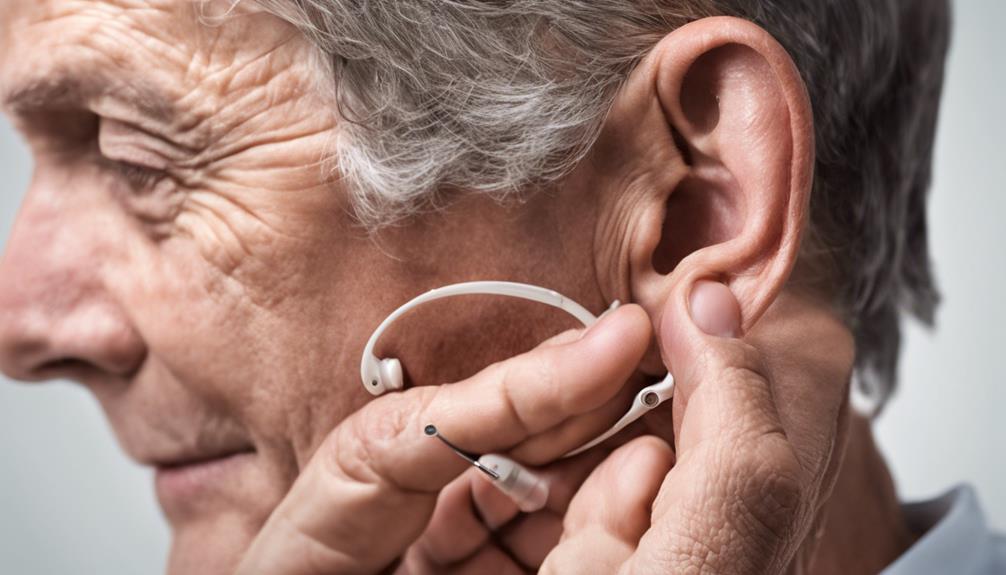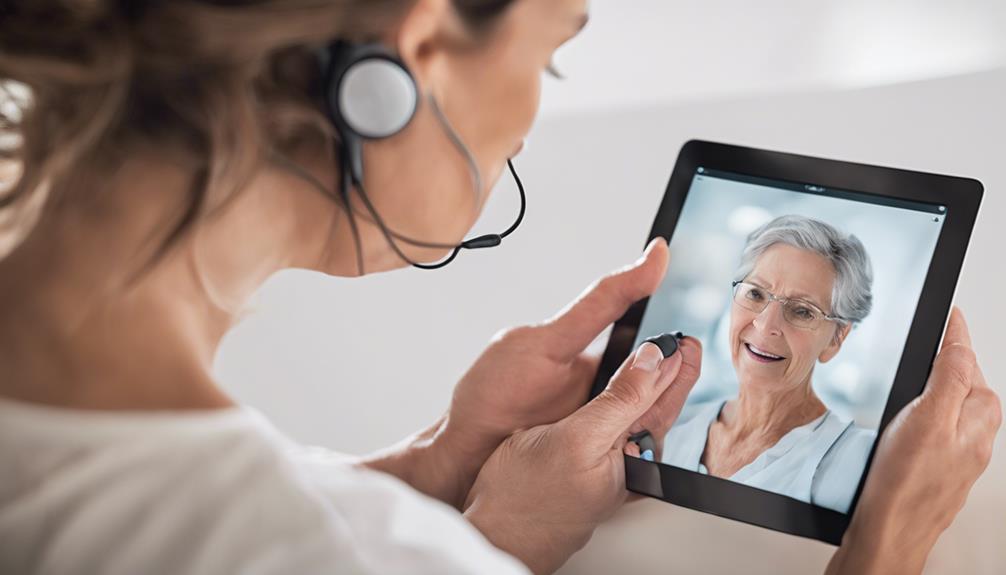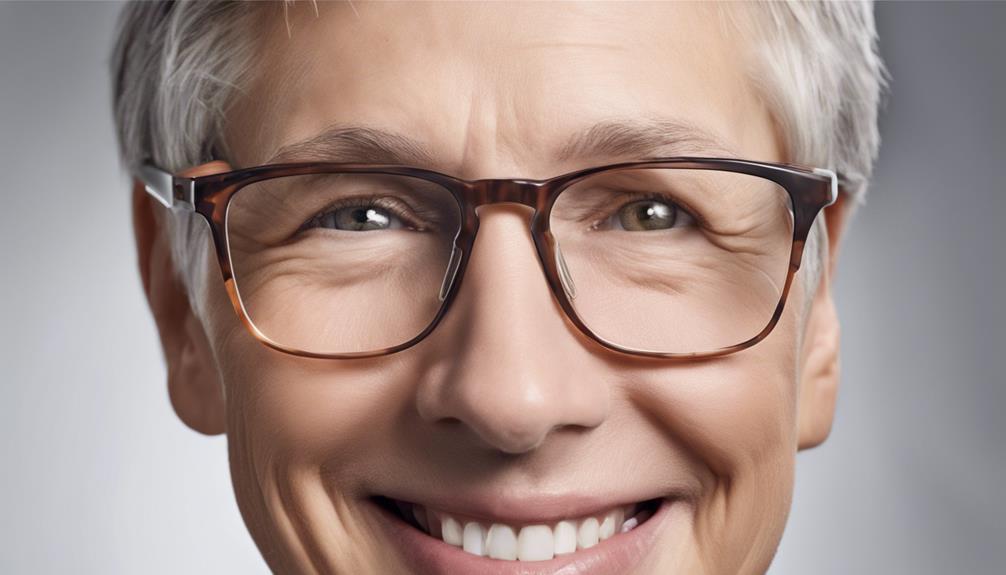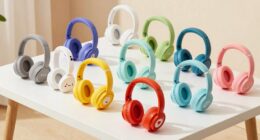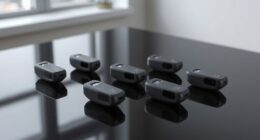Let’s address a common issue directly: the annoyance of itchy ears from wearing hearing aids can be bothersome for many individuals. However, there is no need to fret as we have a variety of effective solutions to offer.
From simple tips to more advanced techniques, this guide aims to provide you with the tools necessary to find relief and enjoy a comfortable experience with your hearing aids.
So, if you're tired of constantly adjusting or feeling discomfort, stick around to uncover the secrets to itch-free ears while wearing your hearing aids.
Key Takeaways
- Ensure proper hearing aid fit to prevent discomfort and itching.
- Use gentle ear cleaning techniques to maintain ear health.
- Manage dry ears to enhance hearing aid performance.
- Seek professional help for personalized solutions and relief.

6pcs/lot Size #13 Preformed Sound Tube BTE Earmold Hearing Aid Tubing (3.5 * 2mm with tube lock)
Preformed BTE Earmold Hearing Aid Tubes with PLASTIC tube clock
As an affiliate, we earn on qualifying purchases.
As an affiliate, we earn on qualifying purchases.
Common Causes of Itchy Ears
Itching ears among hearing aid wearers can stem from various common causes. Delicate ear canal skin, allergic reactions to otoplastic materials, and poorly fitting earmolds are the key culprits. The ear canal's sensitivity means individuals with delicate skin may experience itching when wearing hearing aids. Allergic reactions to otoplastic materials can also lead to discomfort and itching in the ears. If earmolds don't fit properly, whether they're open or closed fittings, it can result in itching for the wearer.
Closed fittings with custom earmolds are particularly prone to causing itching. This is due to a combination of factors such as poor fit, allergic reactions to materials, moisture buildup, and wax accumulation. Addressing these common causes of itching in hearing aid users is crucial to ensure their comfort and the proper use of hearing devices. Properly diagnosing and resolving these issues can significantly enhance the overall experience for individuals relying on hearing aids.

Westone Comfort Ear Natural Ear Drops for Itchy Ears, Ear Ache Drops Adults & Kids | Earwax Aid for Dry Ears | Personal Comfort for Hearing Aid, Swimmers, and Ear Itch Relief for Humans | Pack of 1
MOISTURIZING ACTION: Say goodbye to uncomfortable dry Itchy earwax with Comfort Natural Earwax Moisturizer. It will work wonders…
As an affiliate, we earn on qualifying purchases.
As an affiliate, we earn on qualifying purchases.
Proper Cleaning Techniques for Ears
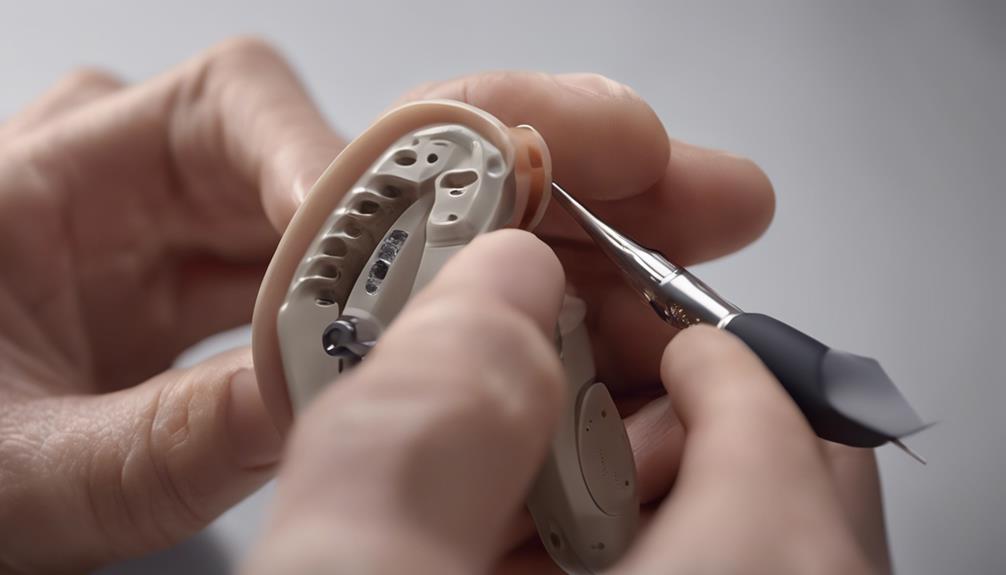
To maintain optimal ear health and comfort while wearing hearing aids, it is essential to utilize proper cleaning techniques for ears. When it comes to ear wax removal, it is crucial to avoid using cotton swabs or sharp objects as they can potentially damage the delicate ear canal. Instead, opt for cleaning your ears with a soft, damp cloth to gently remove excess wax and debris. For safe cleaning, consider using ear drops or solutions that are recommended by an audiologist. If you experience excessive wax buildup or are unsure about how to clean your ears properly, seek professional ear cleaning services. Regular cleaning not only helps in preventing itching but also plays a vital role in maintaining overall ear health.
| Proper Cleaning Techniques for Ears |
|---|
| 1. Use a soft, damp cloth for ear wax removal |
| 2. Avoid cotton swabs and sharp objects |
| 3. Consider using audiologist-recommended ear drops |

8 Pcs Ear Pick Earwax Removal Kit, Geengle Ear Cleansing Tool Set, Ear Curette Ear Wax Remover Tool with a Cleaning Brush and Storage Box
EFFECTIVE EAR WAX REMOVAL TOOL: Different from the cotton swabs which may further push the wax into the…
As an affiliate, we earn on qualifying purchases.
As an affiliate, we earn on qualifying purchases.
Ensuring Correct Hearing Aid Fit
When ensuring optimal comfort and effectiveness of hearing aids, it's crucial to prioritize the correct fit to prevent discomfort, itching, and potential skin irritation. Proper fit is essential for open-fit hearing aids to work effectively and comfortably.
Fit issues like gaps between the hearing aids and the skin can lead to itching and irritation, affecting the overall experience. Regular wear for a few hours daily can help monitor fit and identify any itching problems early on.
If itching persists, consulting a hearing care professional is recommended to make necessary adjustments. Ensuring the hearing aids sit well in the ear canal without causing pressure or friction against the skin is key to preventing discomfort and skin irritation.
A proper fit not only enhances the performance of the hearing aids but also promotes overall ear health and comfort. Trusting a hearing care professional to assist in achieving the correct fit can make a significant difference in your hearing aid experience.

20pcs GN Resound Hearing aid Domes Open(M Size 8mm) Comfortable Silicone Design Noise Reduction Enhanced Acoustics Breathable and Easy to Clean Resound Hearing Aid Accessories Jabra Hearing Aid Domes
Natural Sound Integration: Specifically engineered for mild to moderate hearing loss, these open domes feature a vented structure…
As an affiliate, we earn on qualifying purchases.
As an affiliate, we earn on qualifying purchases.
Tips for Dry Ear Management
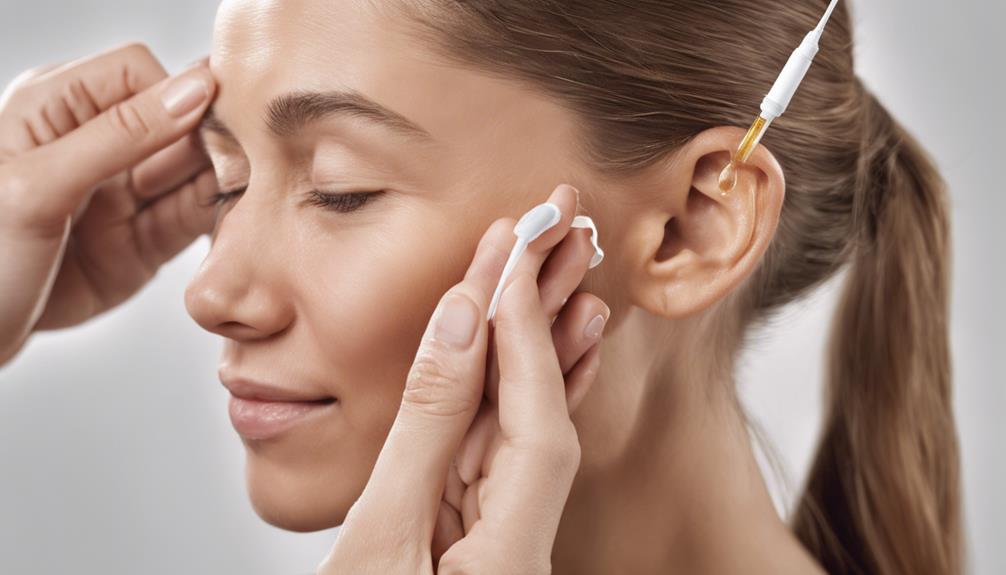
Regularly maintaining dry ear health is essential for maximizing the comfort and performance of your hearing aids. When it comes to dry ear management, there are several key practices to keep in mind:
- Avoid Alcohol-Based Products: Steering clear of alcohol-based products can help prevent further irritation and dryness in your ears.
- Regular Ear Cleaning: Engaging in regular ear cleaning routines can help prevent moisture-related issues that may affect your hearing aids.
- Use a Hearing Aid Dryer: Using a hearing aid dryer at night can help remove any excess moisture, ensuring your devices function optimally.
Seeking Professional Help When Needed
Seeking professional help from audiologists, ENT specialists, or dermatologists is crucial if itching persists despite adjustments made with your hearing aids. Audiologists can assist in ensuring proper fit, recommending medical grade silicone for custom aids, or exploring alternative options with limited tube/receiver lengths to reduce itchiness and discomfort.
If the itching is accompanied by pain, inflammation, or other ear health issues, ENT specialists can evaluate and address underlying causes effectively. Dermatologists specialize in treating skin conditions that may contribute to ear discomfort, providing prompt treatment to alleviate itching.
It's essential to seek professional guidance when needed to prevent worsening symptoms and ensure the overall health of your ears. By addressing itching promptly and with the appropriate expertise, you can receive tailored solutions for your specific concerns, leading to improved comfort and well-being.
Frequently Asked Questions
What Can You Put in Your Ears to Keep Them From Itching?
When our ears itch, we can use drops of lubricant like Eargene or Otoease for relief. Applying these lubricants after removing hearing aids helps soothe irritation and prevent further discomfort.
Properly cleaning ears before reinserting aids can also alleviate itching. Using lubricants proactively, along with ensuring the right fit of hearing aids, can prevent itching and keep our ears comfortable throughout the day.
What Are the Best Ear Drops for Hearing Aid Wearers?
When wearing hearing aids, it's essential to choose ear drops that are alcohol-free and designed for hearing aid wearers. Look for ingredients like glycerin or olive oil to soothe dryness and itchiness.
Harsh chemicals or fragrances should be avoided to prevent allergies or irritation. Consulting with a healthcare professional or audiologist can provide recommendations tailored to your specific needs.
Prioritize ear drops that are gentle and compatible with your hearing aid to maintain ear health and comfort.
How Do You Dry Your Ears for Hearing Aids?
We dry our ears for hearing aids by using a hearing aid dryer. It helps remove moisture from the hearing aids and ear canals, reducing the risk of skin irritation and itching.
Regular use of a hearing aid dryer maintains the longevity and performance of the devices. By properly drying our ears, we can prevent moisture-related issues and ensure comfort while wearing hearing aids.
Can You Use Vaseline on Hearing Aids?
Yes, we can use Vaseline on hearing aids to alleviate itching. Applying a thin layer of Vaseline can reduce friction and create a barrier between the skin and the hearing aid, preventing irritation. It helps lubricate the skin in the ear canal.
However, it's essential to use Vaseline sparingly to avoid buildup and ensure it doesn't interfere with the hearing aid's function. Consult with a hearing care professional to confirm compatibility before using Vaseline.
Conclusion
In conclusion, taking care of your ears while wearing hearing aids is essential for comfort and optimal ear health. By understanding the common causes of itchiness, practicing proper cleaning techniques, ensuring a correct fit, managing dry ears, and seeking professional help when needed, you can prevent discomfort and maintain a positive hearing aid experience.
Remember, your ears deserve the best care, so follow these tips to stop itching ears and enjoy clear, comfortable hearing.

